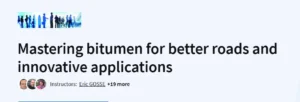What will you in the Organic Solar Cells – Theory and Practice Course
Understand Kierkegaard’s critique of modern society and philosophy.
Explore the philosophical concept of subjectivity and its role in truth.
Examine Kierkegaard’s use of irony and how it draws from Socratic thought.
Analyze themes such as despair, the absurd, and the leap of faith.
Gain a foundational understanding of existentialist philosophy and its relevance today.
Program Overview
Module 1: Life and Work of Kierkegaard as a Socratic Task
Duration: ~2 hours
Learn about Kierkegaard’s biography and intellectual mission.
Study his early influences and approach to philosophy through irony.
Module 2: Kierkegaard, Martensen, and Hegelianism
Duration: ~1 hour
Understand Kierkegaard’s opposition to Hegelian systematic philosophy.
Explore his emphasis on individual experience over abstract logic.
Module 3: The Concept of Irony
Duration: ~1 hour
Analyze Kierkegaard’s dissertation on irony as a philosophical method.
Examine the influence of Socratic irony on modern thought.
Module 4: The Crisis of Modernity
Duration: ~1 hour
Explore how Kierkegaard interprets modern cultural and moral breakdown.
Discuss themes like nihilism, relativism, and loss of authentic values.
Module 5: Subjectivity and Truth
Duration: ~1 hour
Understand Kierkegaard’s famous claim that “truth is subjectivity.”
Contrast objective knowledge with personal, lived experience.
Module 6: Faith and the Absurd
Duration: ~1 hour
Explore the idea of the “leap of faith” and belief in the face of uncertainty.
Delve into the relationship between reason, paradox, and belief.
Module 7: Kierkegaard’s Legacy
Duration: ~1 hour
Review Kierkegaard’s impact on existentialism, theology, and modern philosophy.
Identify key thinkers influenced by his work.
Module 8: Final Reflections and Course Wrap-Up
Duration: ~1 hour
Summarize core philosophical lessons.
Reflect on applying Kierkegaard’s thought to current issues and personal growth
Get certificate
Job Outlook
Philosophy Students & Teachers: Deepen your knowledge of 19th-century thought and existentialism.
Writers and Artists: Gain new perspectives on individualism and authenticity.
Religious Thinkers: Explore faith and doubt through Kierkegaard’s theology.
Mental Health Professionals: Apply existential ideas to therapy and personal meaning.
Anyone Seeking Personal Insight: Engage with themes of purpose, despair, and the self.
Specification: Organic Solar Cells – Theory and Practice
|





